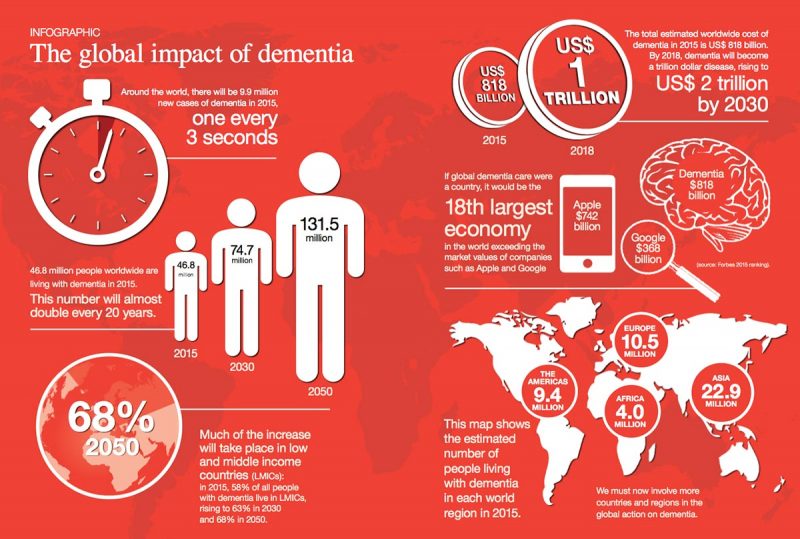International work
Dementia is a global issue. Currently more than 55 million people have dementia worldwide, and every year there are nearly 10 million new cases according to the World Health Organisation (2023). Dementia is currently the 7th leading cause of death and one of the major causes of disability and dependency among older people globally. In 2019, dementia cost economies worldwide $1.3 trillion dollars; 50% of these costs are attributable to care provided by informal carers.
Dementia requires a worldwide response and The ASI plays its part alongside other European and world organisations that advocate on behalf of those with dementia and their carers.

Infographic Dementia and the World
Alzheimer Europe
The ASI is an active member of the umbrella organisation Alzheimer Europe (AE) and one of its founding members. ASI CEO Mr Andy Heffernan was elected to the Board of Alzheimer Europe in October 2022 and re-elected in June 2024.
The ASI works with Alzheimer Europe on European Election campaigns, participates in policy papers and research projects and shares and exchanges knowledge with European partners. ASI staff members and members of the Irish Dementia Working Group have presented and participated at many AE Annual Conferences, at their Alzheimer Academy and regularly at pan-European meetings.
To find out more about the work of Alzheimer Europe visit: https://www.alzheimer-europe.org/
World Health Organisation
Only a few countries currently have formulated national dementia plans, despite over fifty million people worldwide living with dementia. The Global action plan on the public health response to dementia 2017-2025 was adopted by World Health Organisation (WHO) Member States at the 70th World Health Assembly in May 2017, with the aim to urge all countries to build a public policy response to dementia.
In 2017 WHO launched the Global Dementia Observatory. A web based platform, it tracks progress on the provision of services for people with dementia and for those who care for them, both within countries and globally. The Observatory monitors the presence of national policy and plans, risk reduction measures and infrastructure for providing care and treatment. Information on surveillance systems and disease burden data is also included.
